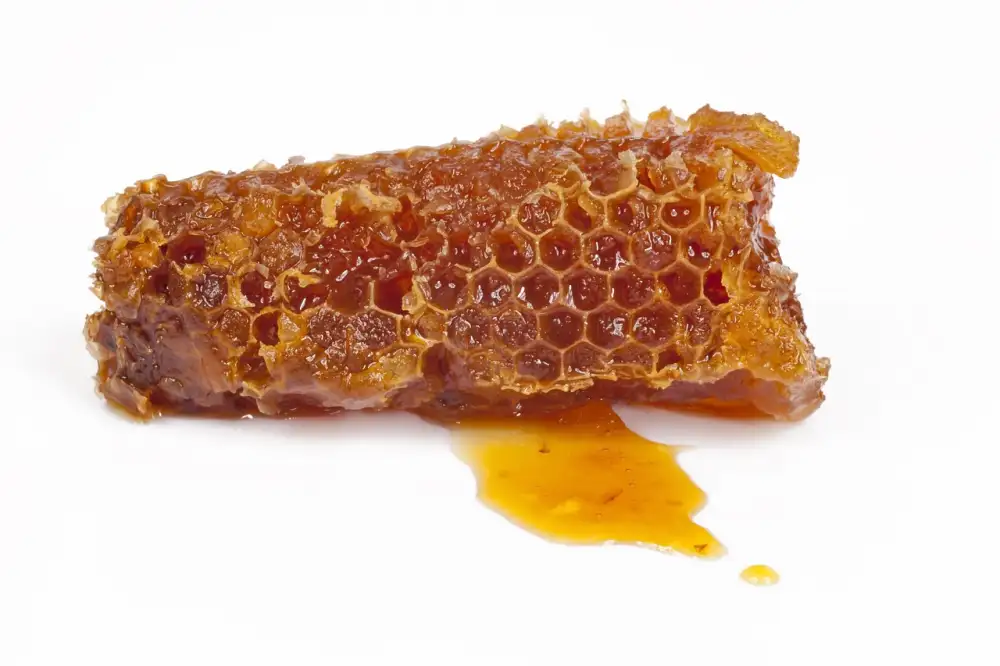Discover the Sweet Secrets of Honeycomb: A Delectable Delight for Food Enthusiasts

Honeycomb, a natural marvel created by bees, is not only visually stunning but also a delectable treat for food enthusiasts. With its unique hexagonal cells filled with golden honey, honeycomb has captured the fascination of people around the world. This intricate structure serves as both a home for bees and a storage unit for their sweet creation. Join us on a flavorful journey as we explore the sweet secrets of honeycomb and uncover its many delights.
The Natural Wonder of Honeycomb
Honeycomb is not only a delicious treat, but it is also a natural wonder. Its unique hexagonal shape is a marvel of nature's engineering. Bees create honeycomb by secreting beeswax from their bodies and then shaping it into perfect hexagons. This intricate structure allows for maximum storage capacity while using the least amount of material. The result is a beautiful and efficient creation that showcases the brilliance of nature.
The Creation Process of Honeycomb
Honeycomb is a fascinating creation that showcases the ingenuity of bees. It all starts with worker bees collecting nectar from flowers. They store the nectar in their honey stomachs and return to the hive. Once back at the hive, these worker bees regurgitate the nectar into the mouths of other worker bees.
This process continues until enzymes are added to break down complex sugars into simpler ones. The mixture is then deposited into hexagonal wax cells within the hive, which are meticulously constructed by the bees themselves.
The bees fan their wings to evaporate excess moisture from the nectar, transforming it into thick, sticky honey. As time passes, this honey becomes even thicker and eventually solidifies into honeycomb.
The intricate structure of honeycomb consists of numerous hexagonal cells joined together, creating a visually stunning pattern. This design maximizes storage space while minimizing material usage – a testament to nature's efficiency.
The creation process of honeycomb is truly remarkable and highlights the incredible teamwork and organization within a beehive.
Nutritional Benefits of Honeycomb
Honeycomb is not only a delicious treat, but it also offers numerous nutritional benefits. Packed with vitamins and minerals, honeycomb is a natural source of energy. It contains antioxidants that help boost the immune system and protect against cell damage. Honeycomb is also rich in enzymes that aid digestion and promote gut health. Additionally, it provides essential amino acids, which are crucial for protein synthesis in the body. So indulge in this sweet delight while reaping its nutritional rewards!
Culinary Uses of Honeycomb
Honeycomb is not only a sweet treat on its own, but it can also be used in various culinary creations. Its unique texture and flavor make it a versatile ingredient in both sweet and savory dishes.
One popular way to enjoy honeycomb is by simply spreading it on toast or crackers. The combination of the crunchy honeycomb and the soft bread creates a delightful contrast of textures.
Honeycomb can also be used as a topping for desserts such as ice cream, yogurt, or pancakes. The sweetness and natural aroma of the honey add depth and complexity to these dishes.
For those who enjoy experimenting in the kitchen, incorporating honeycomb into recipes can elevate the flavors of many dishes. It can be used as a glaze for roasted meats or vegetables, adding a hint of sweetness and a beautiful caramelized finish.
In baking, honeycomb can be crushed and mixed into cookies, cakes, or muffins to add an extra layer of crunchiness and sweetness.
The possibilities are endless when it comes to using honeycomb in your culinary creations. Its unique taste and texture make it an exciting ingredient to experiment with in both traditional recipes and innovative dishes. So go ahead, embrace the sweetness of honeycomb in your cooking adventures!
Honeycomb in Traditional Medicine
Honeycomb has been used in traditional medicine for centuries, valued for its numerous health benefits. It is believed to possess antibacterial and antiviral properties, making it a natural remedy for sore throats and coughs. Honeycomb is also known to soothe digestive issues and promote gut health. Its high antioxidant content helps boost the immune system and protect against oxidative stress. In traditional medicine, honeycomb has been used topically to heal wounds and burns due to its antimicrobial properties. Its natural sweetness makes it a popular alternative to refined sugar, offering a healthier option for those with diabetes or looking to manage their blood sugar levels. Incorporating honeycomb into your diet can provide you with not only a delicious treat but also potential medicinal benefits.
Honeycomb in Popular Culture
Honeycomb has made its mark in popular culture, appearing in various forms of media and literature. In ancient mythology, honeycomb was considered a symbol of fertility and abundance. It has been featured in fairy tales, such as the story of "The Three Bears," where Goldilocks stumbles upon a bowl of porridge with honeycomb. Honeycomb is also associated with Winnie the Pooh, who famously indulges in jars of honeycomb throughout his adventures. Its sweet and golden appearance has made it a favorite motif in art and design, gracing everything from jewelry to home decor. With its rich history and iconic presence, honeycomb continues to captivate imaginations and delight taste buds around the world.
Where to Find and Buy Honeycomb
Honeycomb can be found in various places, catering to the growing demand for this delectable delight. One of the best places to find honeycomb is at local farmers' markets, where beekeepers often sell their fresh, homemade honeycombs. These markets offer a chance to interact with the producers and learn more about the process of creating honeycomb.
Specialty food stores and gourmet shops are also great options for finding honeycomb. They often stock a wide range of artisanal food products, including honeycombs sourced from different regions. These stores may even offer tastings, allowing you to sample different varieties before making a purchase.
For those who prefer the convenience of online shopping, there are several websites dedicated to selling honeycombs. These platforms provide a vast selection of options from various producers worldwide. It's important to read reviews and check for certifications to ensure the quality and authenticity of the product.
Additionally, some beekeeping farms have their own retail outlets where they sell their freshly harvested honeycombs directly to consumers. Visiting these farms not only gives you access to high-quality honeycombs but also offers an opportunity to learn more about beekeeping practices and witness the bees in action.
No matter where you choose to buy your honeycomb, it's essential to opt for reputable sources that prioritize sustainable beekeeping practices and prioritize the well-being of bees. By supporting responsible producers, you can enjoy this flavorful treat while contributing positively to the environment.
So go ahead and embark on a sweet adventure by exploring local markets, specialty stores, online platforms, or even visiting beekeeping farms – all leading you towards discovering the pure sweetness of nature's treasure: honeycomb.
In conclusion, honeycomb is a truly remarkable and delectable delight for food enthusiasts. Its natural wonder and creation process make it a unique and fascinating ingredient. Not only is honeycomb delicious, but it also offers numerous nutritional benefits. Its versatility in culinary uses allows for endless creativity in the kitchen. Additionally, honeycomb has been used in traditional medicine for its healing properties. It has also made its way into popular culture, becoming a symbol of sweetness and indulgence. If you're eager to experience the sweet secrets of honeycomb, you can find and buy this delightful treat at specialty stores or online. So go ahead, embrace the sweetness of honeycomb and embark on a flavorful food adventure!
Published: 25. 11. 2023
Category: Home



